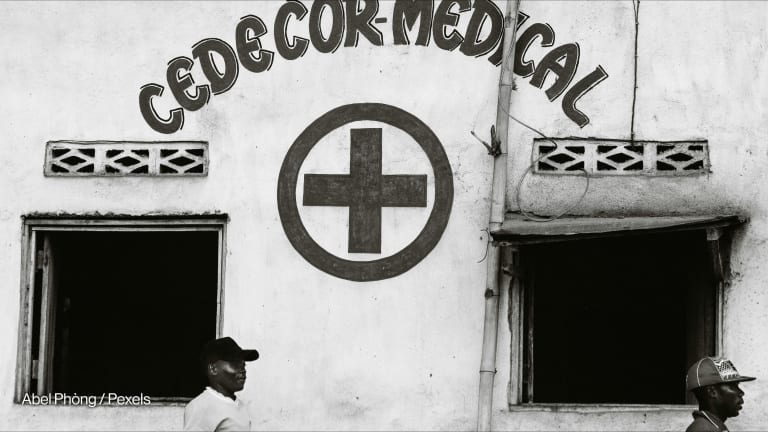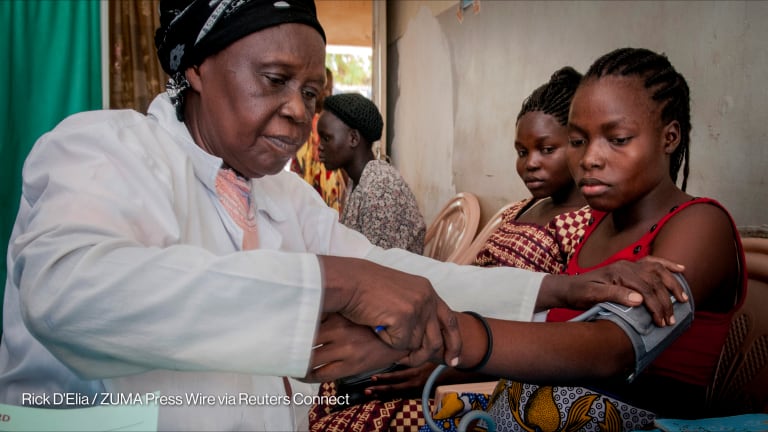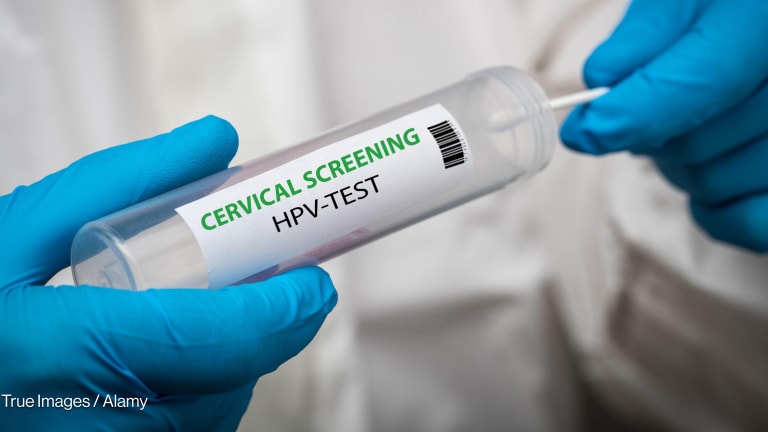
U.N. Secretary-General Ban Ki-moon convened health leaders and experts from over 30 countries to solidify a plan of action so that by 2030, no woman, newborn, child or adolescent dies from causes we know how to prevent, and that they all thrive to realize the future they want and deserve.
Some may say these are ambitious goals. But is it achievable? We think it is.
In 2010, the secretary-general launched the Global Strategy for Women’s and Children’s Health and a movement driven by shared responsibility, Every Woman Every Child, to help accelerate the achievement of the health-related Millennium Development Goals.
The movement was a direct response to the need for an innovative and inclusive platform for collective, cohesive and focused action on two areas that were lagging the farthest behind. Maternal deaths in developing regions were 15 times higher than in developed regions. The annual rate of reduction in under-5 deaths still remained insufficient to reach internationally agreed development goals.
The movement led to remarkable results. Over 400 commitments have been made by 300 partners: $34 billion in resources have already been disbursed, translating into concrete action on the ground. Maternal and child death rates have fallen in every one of the 49 countries targeted by the global strategy.
Every Woman Every Child helped us build this momentum, creating a global community working under one umbrella to contribute to concrete outcomes. Strong commitment, high-level political leadership, partnership among governments, the United Nations, the private sector and civil society, improved accountability mechanisms and a focus on innovation proved to be the keys to success.
Under the MDGs, the most successful anti-poverty drive in history, lives have been saved on an unprecedented scale. And we are particularly proud of what has been accomplished over the past five years for women and children. However, the progress achieved is fragile and our work to improve the health and well-being of all women, children and young people remains unfinished. The world has changed drastically in the past five years, and we face even greater challenges.
See more stories on maternal and child health:
● What we've learned about reaching every last child
● Ending poverty through sustainable development and leaving no one behind
● World Bank-led financing facility aims to boost progress on MDGs 4, 5
● The future we want
We must confront the fact that some 800 women still die each day from causes related to pregnancy or childbirth. Adolescent girls are more vulnerable to HIV infection, sexual violence and harmful practices. Women and children are up to 14 times more likely to die in a disaster. Too many newborns do not survive even their first 24 hours of life.
As we are currently defining a bold new development agenda that will firmly set the world on a path toward inclusive, sustainable development, the health and well-being of women, children and adolescents must be at the center. We must ensure equity by focusing our efforts on the most vulnerable and hard to reach. It must be our goal to leave no one behind.
This is why the U.N. secretary-general is updating the Global Strategy for Women’s and Children’s Health: to improve the health and well-being of all women, children and adolescents in every setting, accelerating action around agreed development goals and further guaranteeing the success of the new development agenda.
Women, children and adolescents are the most powerful drivers of the transformative changes required. It is their potential that remains largely untapped where resources are scarcest.
The updated Global Strategy for Women’s, Children’s and Adolescents’ Health, and the Every Woman Every Child movement that supports it, will be the guiding platform for galvanizing action to deliver on the sustainable development goals, driven by country ownership and leadership.
By investing in women, children and adolescents today, and over the next 15 years, we can save a generation, within a generation — while benefiting many more to come.
But then again the opportunity and responsibility to act belongs to us, now. We must have renewed political commitment and robust leadership, which must be backed up with concrete action and financing at all levels and from all stakeholders, working in partnership.
That is also why a Global Financing Facility in support of Every Woman Every Child is being established. This new funding mechanism will be launched during the third International Conference on Financing for Development in Addis Ababa, Ethiopia, in July to foster innovative funding for women, children and adolescents’ health and help countries transition to more sustainable financing.
The U.N. secretary-general is pressing forward with a call to action to global leaders. Achieving our ambitious goals requires every single one of us to go the extra mile and ensure no one is left behind.
In Ban Ki-moon’s own words, “Every Woman Every Child is a health worker going the extra mile to save a life. It is a politician, a business person, it is an educator. It is your mother or father, brother or sister. Every Woman Every Child is you. Every Woman Every Child is me.”
To read additional content on global health, go to Focus On: Global Health in partnership with Johnson & Johnson.








